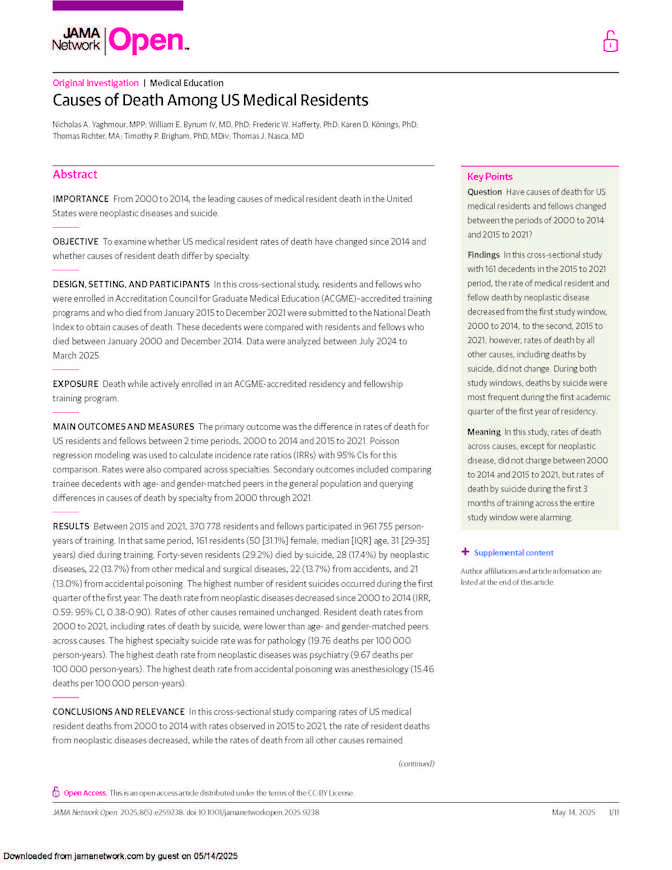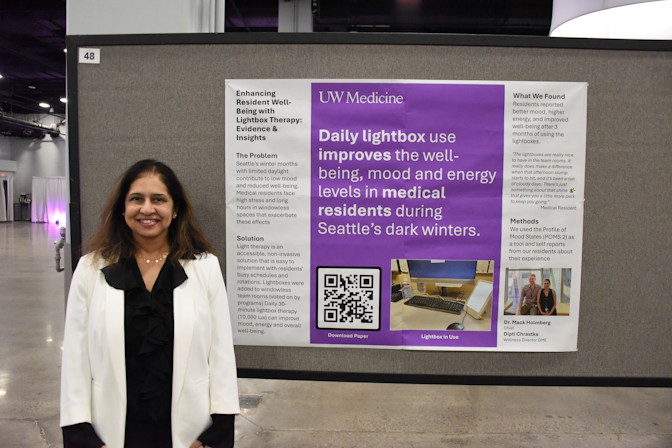Residents and Fellows
June 9, 2025
Submit a proposal to present at #ACGME2026; participate in Review and Comment; read updates from Review and Recognition Committees; and more.
June 2, 2025
Submit a proposal to present at #ACGME2026; participate in Review and Comment; nominate a resident or fellow to serve on a Review or Recognition Committee; and more.
May 27, 2025
Submit a proposal to present at #ACGME2026; learn more about ACGME Cloud; apply to participate on an Appeals Panel; and more.
Study Published in JAMA Shows Leading Causes of Death Among Residents and Fellows in the US
Researchers at the ACGME, Duke University, and Maastricht University published the results of a comprehensive study examining the leading causes of death for residents and fellows, building on a similar study completed in 2017.

Improving Physician Well-Being, Restoring Meaning in Medicine
May is Mental Health Awareness Month, and this month the ACGME will shine a spotlight on resources for enhancing the well-being of all in the GME community.

May 5, 2025
Read updates about the ACGME Cloud; prepare for the #ACGME2026 Call for Sessions; comment on proposed Program Requirements; and more.
Behind the Poster: An Interview with Dipti Chrastka, LMFT
Q and A with #ACGME2025 poster presenter Dipti Chrastka, LMFT, on her team's study on "Enhancing Resident Well-Being with Lightbox Therapy."

April 21, 2025
Participate in the Clinician Educator Journal Club; submit blackout weeks for Clinical Learning Environment Review (CLER) Program visits; and register for the Renewal 2025 retreat.
My Volunteering Experience: Dink Jardine, MD, MS, FACS
A Q and A with Dr. Dink Jardine in a series recognizing ACGME volunteers during National Volunteer Month.


